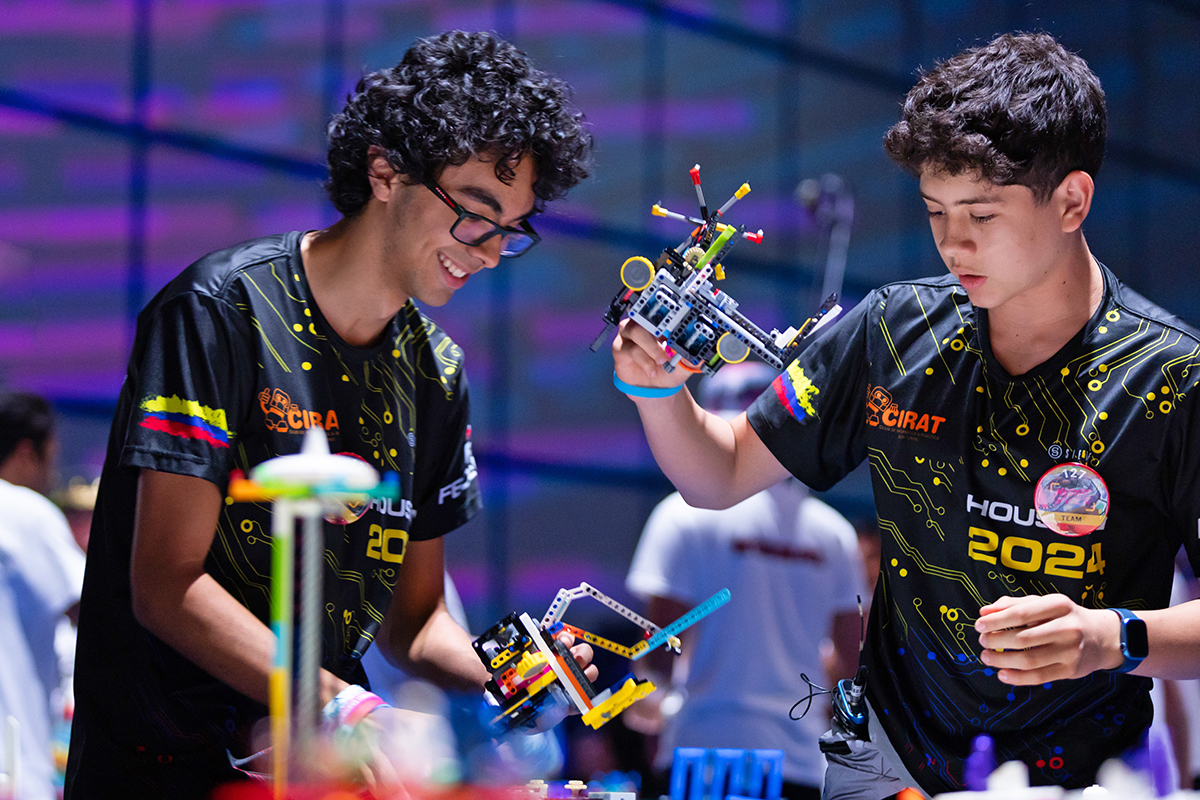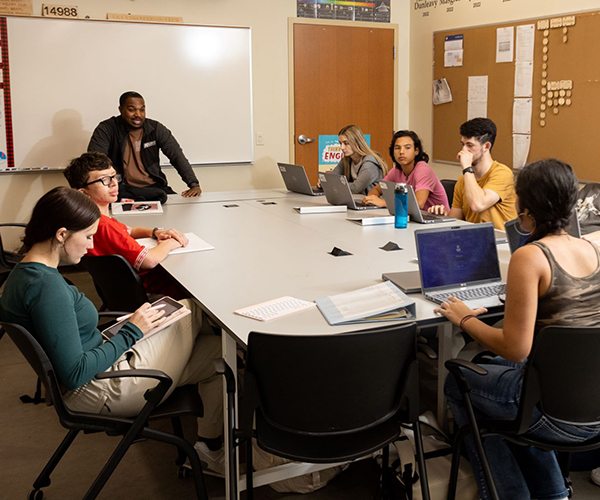Can’t you just picture this guy? A pocket protector in his plaid shirt; pants pulled above his waist but revealing too much white tube sock; pointy, thick, black-framed glasses sliding down his nose; sitting alone in the corner of the school cafeteria, book opened, eating an egg-salad sandwich on white and slurping milk from a cardboard carton…
Unfortunately, that’s a media-inspired image of the school genius. In reality, gifted kids aren’t as easily recognizable in a classroom. We asked four experts — psychologists Felipe Amunategui, of University Hospitals, and Sylvia Herd, of Cleveland Clinic; Ann Sheldon, executive director of the Ohio Association of Gifted Children; and Cleveland State University professor Robert Abelman — to explain more about gifted children.
What about the image of a gifted child as depressed or a loner?
Abelman: Being gifted and being a social isolate don’t necessarily go hand in hand. But it may be that a child has been so smart for so long that it manifests in advanced language ability that puts off other kids. Or, they love to read, which means they may not have developed certain social skills at an early age because they’ve spent so much time reading.
Amunategui: It’s not unusual to find gifted kids who are anxious or depressed. Because of their level of insight that is not tempered by cynicism, they are likely to have more vulnerable reactions to everything from what’s going on in their family to what’s going on in the community and world. They will understand the implications better than other kids their age. They will formulate scenarios and likely consequences. They will experience a lot of apprehension and have no means to deal with that. While one child might think about what’s the newest release of a video game, a gifted peer the same age might be worried about what’s going on in Lebanon.
Is IQ the best measure of giftedness?
Herd: I tend to look at intelligence as having lots and lots of facets. I agree with [Harvard professor and author] Howard Gardner’s multiple intelligence theory. We don’t just talk about children with gifts in traditional academic related areas, but things like music and creativity, leadership, that IQ tests don’t measure. Intellect is a single factor in development and other stuff needs to be looked at.
Amunategui: A child that’s considered gifted, in the broadest sense, is measured in terms of verbal intelligence and performance intelligence. We are just getting to the point of recognizing that there’s such a thing as social and emotional intelligence. There are not really good ways of measuring those, though we’re getting better at it. We psychologists have struggled for a long time with how to measure creativity.
What should I do if I think my preschooler is gifted?
Amunategui: The least reliable measures of IQ are the ones done early in the lifespan. A kid’s IQ in preschool is much lower than the kid’s IQ in 10th grade, and again in college. But if a preschooler has a talent for music, by all means, do something to promote that, even if it’s just getting the kid an instrument and soundproofing their room so they can make all the noise they want.
Herd: Giftedness tends to show up early. You’ve got a toddler who is imaginative and playful and curious about everything. It’s important for parents to keep the relationship with the child very close, stretching them a little bit. Try to have as much fun as possible, playing, reading, going to parks or museums. Help them feel very natural about who they are. But formal testing is best once they’re school age, at least around age 8.
If my child is labeled gifted by the school, should I expect her to get straight A’s?
Herd: Because you’re gifted doesn’t make you perfect. You can be gifted and you can have a learning disability. You can be dyslexic. You have a spectrum of children with different kinds of gifts at different kinds of levels, different kinds of weaknesses.
Why are gifted kids sometimes viewed by teachers as troublemakers?
Amunategui: Gifted kids can be very intimidating for teachers. They also get bored. Frequently — this is not unusual — you have a child who will finish an assignment in a fraction of the time as it takes his peers. What will a teacher do? Give him another assignment. So, depending on the temperament of the child, the child may say, “Wow! Why should I do this?” And that can lead to problems. The other side of that is when that child is done, he has nothing to do. And guess what he’s going to do? Entertain himself. And in the classroom, that can be disruptive. A gifted child might also challenge a teacher directly. A teacher who is intimidated by a child like that can kill any kind of precocious interest in a subject.
Sheldon: The broader issue is that general educators have no training in gifted education. Some of the misconceptions general educators have about gifted children and gifted education can be very damaging. Some of the most effective means to serve gifted children, such as ability grouping and acceleration, are often viewed with horror by a general educator. The fact is, research shows that ability grouping and acceleration are very educational and cost-effective ways to serve children.
What else can a teacher do?
Amunategui: Instead of loading up the kid with extra assignments, just giving a kid an assignment that’s tailored to her capacity is more effective. A teacher who is experienced will say, “How about you show me the stuff that you’re interested in learning about?” So, they start working on an educational plan that’s more tailored to that kid. But that requires a person who, No. 1, knows what they’re dealing with and is comfortable with being flexible about a curriculum limitation.
Can parents put too much pressure on a gifted kid?
Abelman: The first thing you need to do is figure out the child: personality, sense of humor, intellectual capabilities. ... Because sometimes pushing is not the right thing for some children and other children need to be pushed. They may have the same IQ scores, but their personality may be different, their sensitivities may be different, their sense of humor may be different, that means the world as to how to best take that child’s ability and have it lead to something wonderful and productive.
Herd: Research that talks about pressure makes the distinction between pressure that’s challenging — challenging expectations that the child can meet — and debilitating expectations. The difference can be subtle. When you overdo, overschedule, overemphasize, even accidentally overpraise, so that the child only feels good when they’re getting praise, there can be problems with that. Try to keep a balance between high expectations and pressure. Make sure that the child isn’t somehow thinking that she has to be perfect in order to be OK.
| The X-Box Factor Turn off the TV, and you’ll turn kids on to learning. That’s a mantra that educators have harped on for years. But not so fast, says Robert Abelman, a professor of communications at Cleveland State University who studies gifted kids and media. TV and video games can play an important role in the development of a gifted child, he says. The Mensa Education and Research Foundation honored Abelman with its 2005-2006 Award for Excellence in Research — the third time he’d won the prestigious award. Mensa is an organization representing people whose IQ is in the top 2 percent of the population. (Abelman himself fits that category — although he admits he let his Mensa membership lapse.) A TV show, Internet or video game’s content might not be what draws a gifted child in. Abelman says it’s critical to understand there’s more to media than what the average person sees. “Intellectually gifted children are attracted to different forms of television, see it and understand it differently and take different things from it than academically average kids,” Abelman explains. It might not be as critical for gifted kids to limit their viewing to PBS or The History Channel. It might be the devices used by the show — such as camera angles, lighting, music and editing — that capture their imagination in the same way a beautifully written novel might. “The storytelling devices in really well done television programming — even if it’s a medical or forensic drama — may facilitate some intellectual and creative skills,” he says. The Internet also is important to gifted kids. “Intellectually gifted kids tend to have an insatiable desire for information, to have access to unlimited information is very empowering,” Abelman says. And, as for video games: “The very nature of the video game is that there’s a learning curve: You’re ignorant, you learn, you master and you move on to the next task,” he explains. “You’re learning the rules, and it’s a continuing application of cognitive skills. To a very large extent, that’s a very healthy thing.” Of course, Abelman says it all with one big caveat: Parents still need to parent. He advises it’s best to know your child and what type of content in the media they can actually handle. For example, gifted-but-underachieving kids can be notorious for using media to waste their time and potential. “If given free reign, children that are identified as underachieving gifted tend to consume an extraordinary amount of television, spend an exceptional amount of wasted time on the Internet, or playing video games which they’ve already mastered,” he warns. “These are kids who have all the potential in the world, but tend not to have the infrastructure to be able to set it off in a positive direction.” But for those gifted kids who do have built-in self-control, Abelman says all forms of media can be empowering and creative learning tools. |
Trending
-
1
-
2
-
3
-
4
-
5










